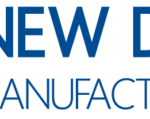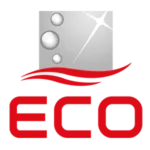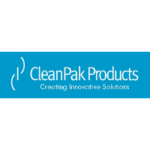What Are Private Label Cleaning Products?
Private label cleaning products are cleaning solutions and supplies manufactured by one company but sold under the branding and labeling of another company. In this arrangement, a manufacturer produces a range of cleaning products, such as detergents, disinfectants, surface cleaners, and specialty cleaners, and allows retailers, distributors, or other businesses to market and sell these products under their own brand name. Private label cleaning products offer businesses the opportunity to offer a diversified range of cleaning products without the need for in-house manufacturing facilities or expertise. This approach allows for customization in terms of branding, packaging, and formulation, enabling companies to establish a unique presence in the cleaning products market while leveraging the manufacturing capabilities of specialized producers.
What are the top private labeled cleaning products?
Among the leading private label cleaning product categories are surface cleaners, degreasers, carpet cleaners, polishes, janitorial products such as hand soaps, sanitizers, and dispensers, as well as specialty cleaners like oven, glass, and restroom cleaners. These categories encompass a wide range of cleaning solutions tailored to various needs. Notably, many private label manufacturers provide customization options for formulations, packaging, and branding, allowing retailers to tailor products to their specific market and brand identity.
Why contract manufacturing is best for cleaning products?
Contract manufacturing is advantageous for cleaning products due to several reasons. Firstly, it allows companies to tap into the specialized expertise and resources of established manufacturers, reducing the need for substantial investments in production facilities and equipment. This results in cost savings and increased efficiency. Secondly, contract manufacturing enables businesses to scale production volumes based on demand fluctuations, ensuring flexibility and responsiveness to market changes. Thirdly, outsourcing cleaning product manufacturing to experts allows companies to benefit from the latest technologies, formulations, and quality control measures by the manufacturing partner. This often leads to high-quality, consistent products that meet industry standards. Overall, contract manufacturing streamlines the production process, and allows companies to focus on marketing, distribution, and building their brand in the competitive cleaning products market.
What is the market size of the contract-manufactured and private label cleaning products industry?
The market size of the contract manufactured and private label cleaning products industry remains somewhat elusive due to the lack of specific figures. However, insights can be gleaned from related sectors. The global contract cleaning services market, encompassing janitorial, housekeeping, and sanitization services, is projected to expand from $368.94 billion in 2023 to $393.21 billion in 2024. While this market incorporates some private label cleaning products, the exact proportion is unspecified. Additionally, the industrial and institutional cleaning chemicals market, inclusive of certain private label products, was estimated to exceed $50 billion. Although this figure encompasses a broader range of cleaning solutions beyond just contract manufactured private label products, it underscores the significant size and potential growth of the sector. Further detailed analysis specific to contract manufactured and private label cleaning products would be necessary to ascertain a precise market size for this segment.
How to select a cleaning products manufacturer?
Selecting the right cleaning products manufacturer involves thorough vetting of several factors. Firstly, assess the manufacturer’s experience and expertise in producing cleaning products, including their track record of quality and compliance with industry standards. Secondly, evaluate their manufacturing capabilities, including production capacity, manufacturing technology, and flexibility to accommodate your specific requirements. Thirdly, consider the manufacturer’s commitment to sustainability, safety, and regulatory compliance, ensuring alignment with your brand values and market expectations. Additionally, assess their responsiveness, communication channels, and ability to collaborate effectively throughout the manufacturing process. Lastly, seek recommendations, conduct site visits if possible, and negotiate terms that prioritize quality, cost-effectiveness, and long-term partnership viability.










